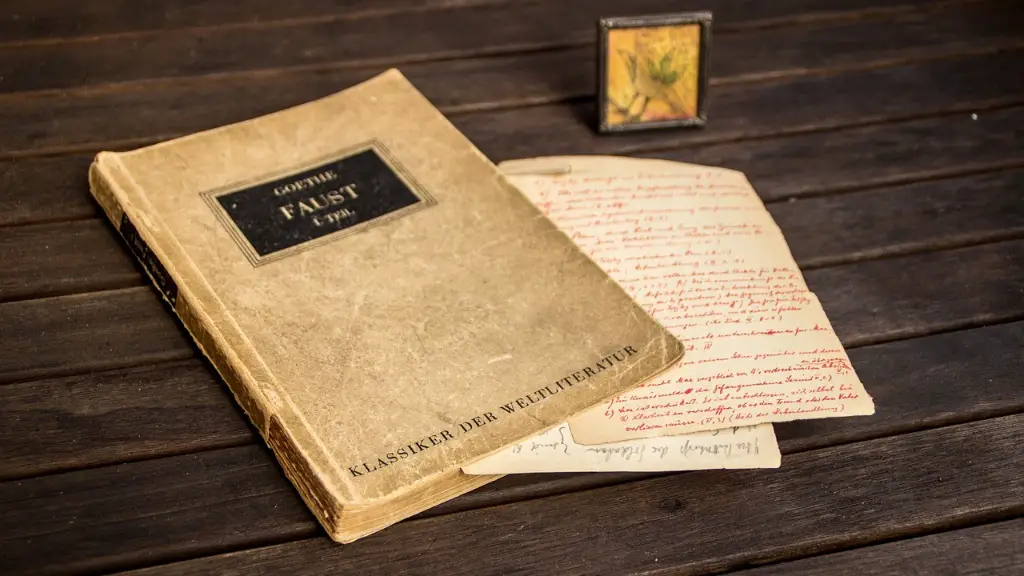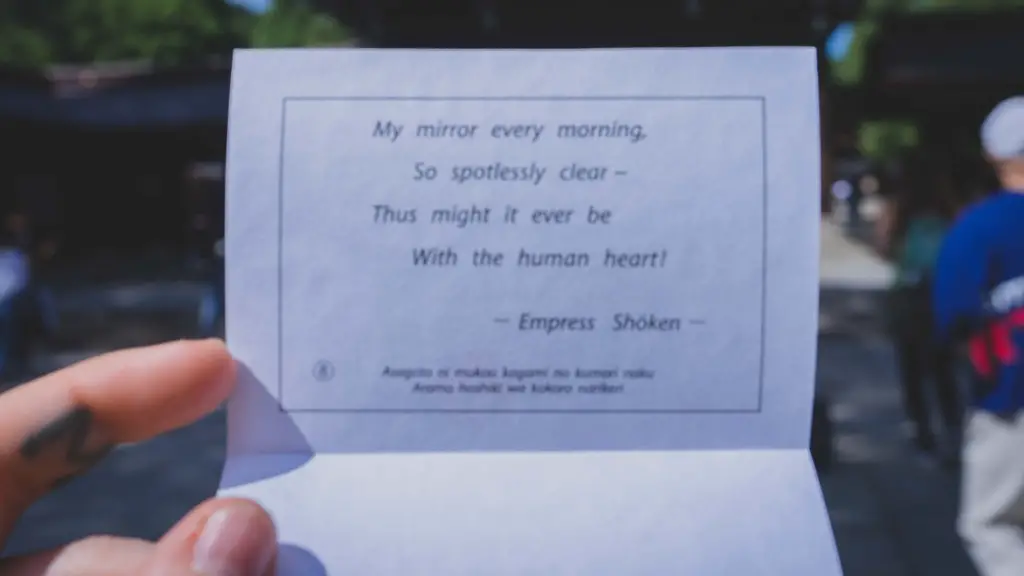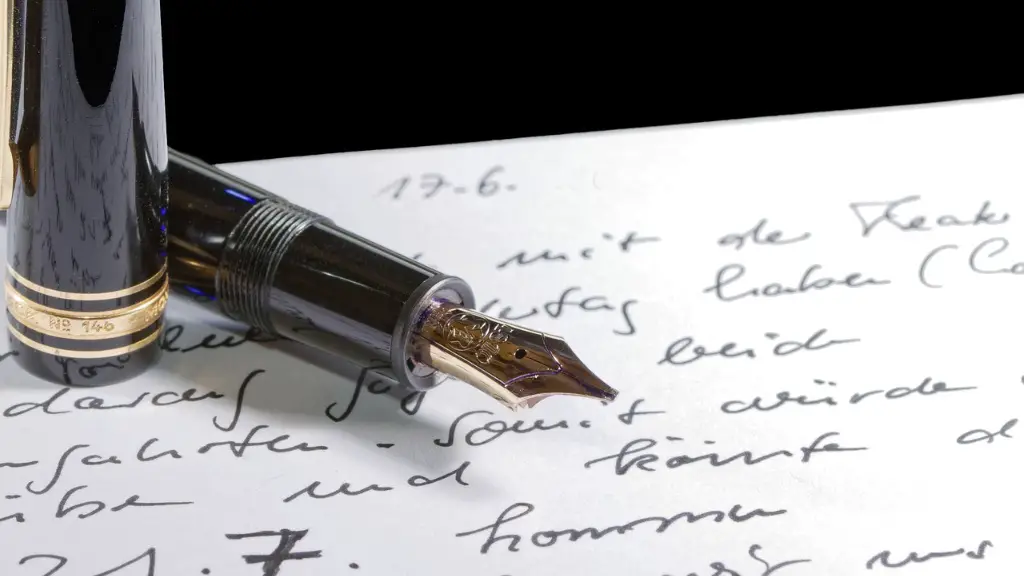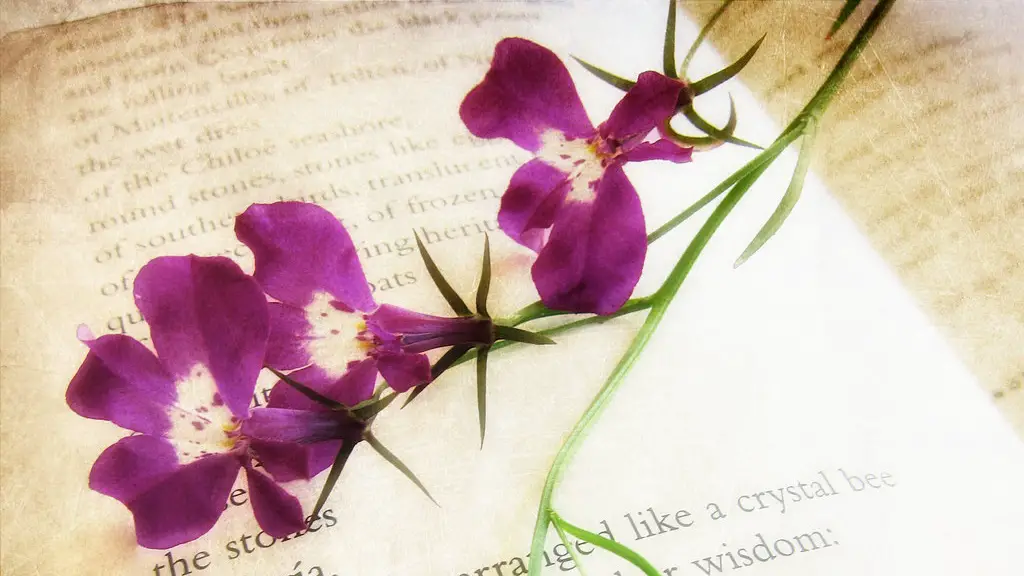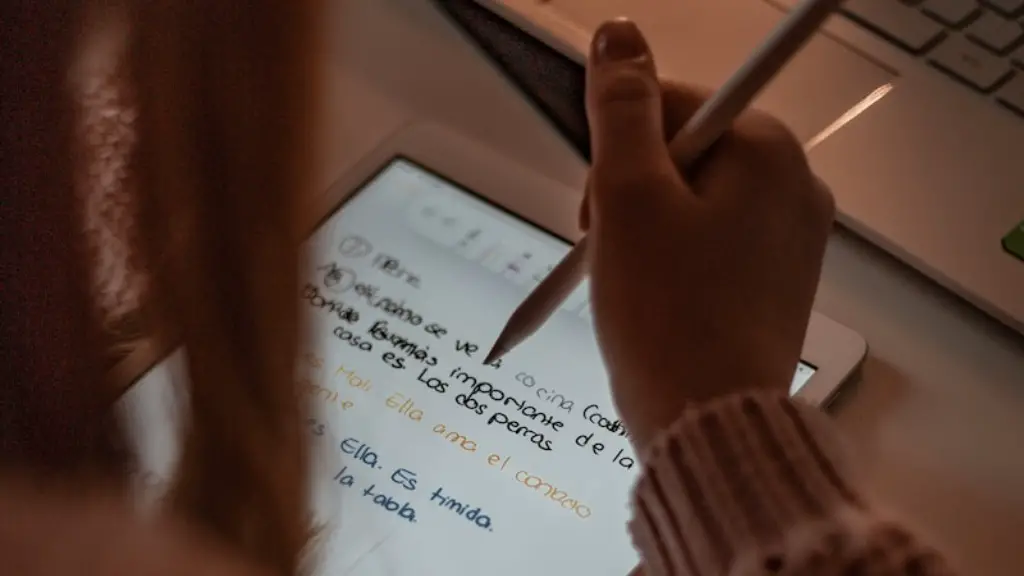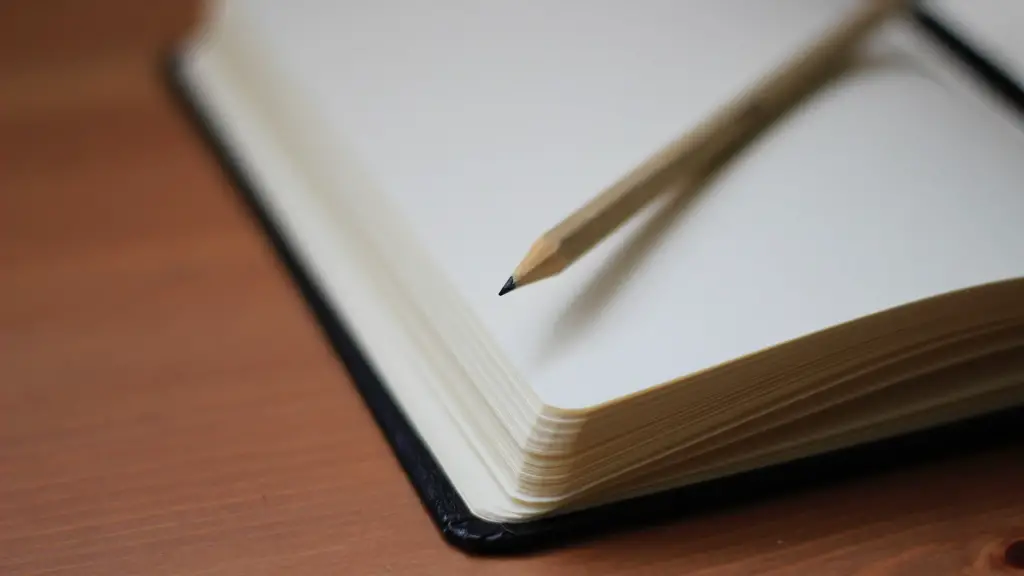What Is Poetry?
The definition of poetry is a type of literary composition that expresses ideas or feelings in a very creative, unique and often beautiful way. Poetry is different from prose in that it is typically composed with more structure and organization than prose, though it often has a more intricate sense of rhythm and melody. Poems typically make use of vivid imagery and abstract ideas, often in a very imaginative and evocative way. Additionally, poems tend to be more concise than prose, often expressing an entire idea or story in a few lines.
A well-crafted poem can convey a particular emotion or feeling in a way that few other forms of writing can. By splitting words or lines into specific patterns, poets can craft unique motifs or themes in their poems that act as layers of meaning and understanding. Additionally, this structure allows poets to manipulate the attention and focus of a reader by emphasizing what they want to be noticed and experienced first.
Poets have been using their craft to narrate stories, evoke emotions, and occasionally spark revolutions since the earliest written records. Poetic structures like haikus and sonnets have been used to convey love and admiration, while epic poems like The Iliad and The Odyssey have been used to tell tales of grand adventures and battles. Over time, the evolution and development of diverse forms of poetry have allowed for greater levels of complexity, affecting both its use as an artistic skill and its potential for advocacy and narration.
Exploring The Power Of Poetry
Poetry has a unique power to inspire and captivate. Poems that are particularly moving or powerful can be remembered by readers for years or even decades. Additionally, since some forms of poetry can be effective tools for communication even with limited or no prior knowledge of the language, they can be incredibly useful in conveying emotions and messages across cultural and language boundaries.
Poetry is an especially powerful tool in digital and online environments. With the availability of smart devices, tablets and the internet, digital poetry has become increasingly popular, having been adopted by modern artists, influencers and poets around the world.
By harnessing the power of digital media, digital poets use creative tools and technology to compose poems and express ideas, feelings and stories that are unique to the digital age. For example, they may incorporate interactive elements such as animation and visual effects, or assemble video clips, images and sounds to create arresting, immersive digital poems.
The potential of digital poetry is vast and many new forms, structures and stories are constantly being created and explored. From short poems that accurately convey a powerful emotion in just a few lines, to ambitious multimedia projects presented through interactive platforms or VR, digital poetry has become a potent and versatile tool for storytelling and expression.
How To Appreciate Poetry
When it comes to appreciating poetry, there is no one definitive way. As with any art form, it is subjective and how one person experiences and appreciates a poem may be vastly different from how another person does. Ultimately, the best way to appreciate poetry is to read, read and read some more.
When reading a poem, it is important to take your time and read the poem in its entirety, paying attention to any patterns, imagery or language that stands out to you. Additionally, it can be helpful to consider the context in which the poem was written, such as its setting, culture or chosen form. Poems often take on deeply personal meanings to their authors and readers alike, so taking time to think about different interpretations and perspectives can help you to appreciate a poem on a more meaningful level.
Finally, exploring the works of different poets can help you to understand and appreciate the art of poetry from a strategic standpoint. You can pay attention to patterns of language, shorthand and structure that different poets use and see how the same themes and messages can be conveyed in different ways.
The Benefits Of Writing Poetry
In addition to reading and appreciating poetry, there is also much to be gained from writing poetry. While composing a poem often requires working in a constrained space or form, this challenge can be incredibly rewarding, as it often encourages creative expression, originality and vivid writing.
Moreover, writing poetry is a great way to practice and refine your writing skills. Not only can it help you become comfortable and better at crafting language and images, it can also help you become better at communicating complex ideas and emotions in a concise and effective manner.
Writing poetry can be a therapeutic exercise as well. Many people have used poetry as an outlet for expressing their feelings in a safe and creative way. Having a creative form of expression can help put your thoughts into perspective and help you to understand and outgrow difficult emotions or experiences.
The Future of Poetry
As technology continues to evolve, so too does the landscape of poetry. As new network protocols and frameworks are created, poems and stories created with emerging technologies can reach a wider audience. With more powerful tools available, poets are finding more creative ways to express their ideas and showcase their work.
What is particularly exciting is the convergence of art and technology. Through platforms such as blockchain, artificial intelligence, and augmented reality, poets are finding new ways to create immersive experiences that are unlike anything that has been seen before. As these technologies improve and evolve, it may become possible for poets to create experiences that engage people on a very deep and emotional level.
Poetic Expression Across Genres
The use of poetic expression has been extended into many other mediums, from art to film and beyond. From soaring operas to short animated films, from hip-hop lyrics to Broadway plays, poetry has found its way into many different artistic works.
The power of poetry lies in its potential for transformation. By blending together different styles of expression, creators can create unique experiences that move people and make them think. By connecting different art forms, creators can also make powerful statements that are both timely and timeless.
In many ways, the power of poetry is universal, as expressions of different kinds can be combined, recombined and recontextualized in unique and creative ways. As new forms of artistic expression, such as interactive and immersive media, become available, the potential of poetry to ignite and inspire looks to become all the more real.
Poetry and Visual Art
In recent years, poetry has been combined with visual art in interesting and inspiring ways. By combining the visuals of visual art with the emotion and resonance of poetry, creators can evoke powerful ideas, feelings and stories in a single piece.
For example, poems can be combined with paintings, sculptures or illustrations to create multimedia artwork that presents a message or feeling in an entirely new way. Through this medium, the words and visuals supplement and enhance one another, creating a multi-dimensional, interactive experience that can be appreciated both on a logical and emotional level.
In addition to visual arts, dance, music, theater and even fashion have also been combined with poetry. From interactive performance pieces to emotionally charged fashion shows, poets are now exploring the creative potential of combining different genres and mediums to create layered and immersive experiences.
Poetry as a Societal Tool
Throughout history, poetry has been a powerful tool of communication, expression, and advocacy. From wars waged and revolutions sparked, to unjust proceedings and social change, poetry has often been on the frontline. By conveying unique feelings, ideas and stories that cannot be expressed through normal discourse or prose, poets can often create a visceral response that can mobilize and shape society.
In modern society, poetry is still seen as a powerful tool for social change and advocacy. Poets are using their works to express their individual perspectives and positions on topics such as gender and racial equality, environmental causes, migration, and political unrest. Through the use of powerful language, imagery and structure, poets can create works that can draw attention to important matters and move people to act.
In conclusion, poetry is a powerful and versatile tool for expression, communication, and creativity. From the wordsmiths of antiquity to the digital poets of the contemporary age, the art of poetry has touched almost every culture and society throughout its long and storied history. With its power to move and inspire, poetry is set to be an ever-evolving force in the future.
